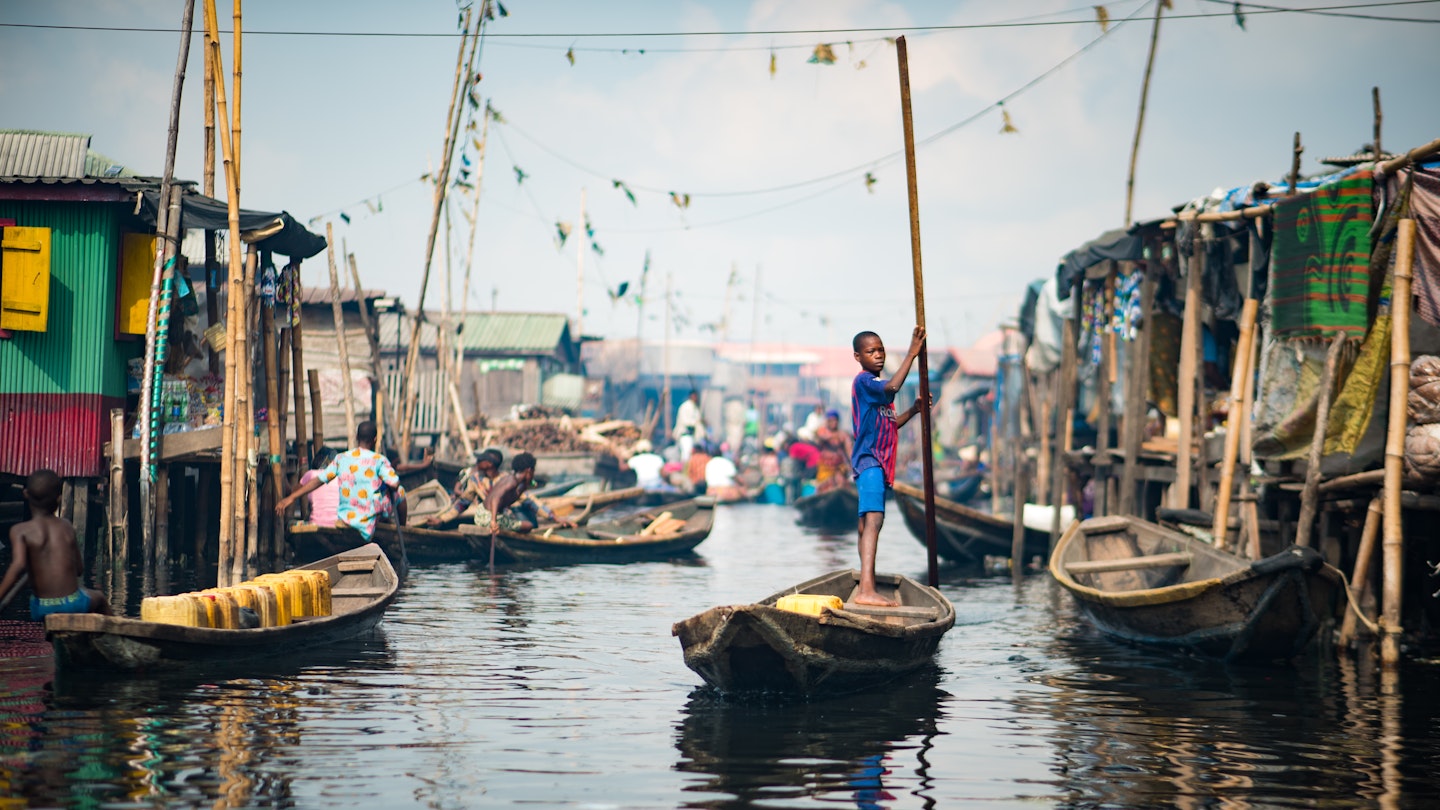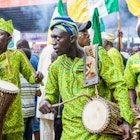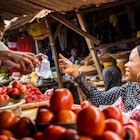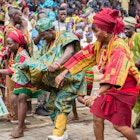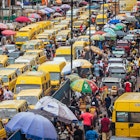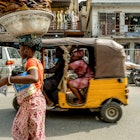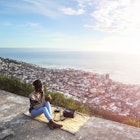It’s in the DNA of Lagos to welcome visitors and make them feel at home, whatever the length of their stay.
A common saying, loosely translated, praises Lagos for having room enough for “owners of the house, the guest and the lazy.” It is what this metropolis has done over the centuries, attracting traders, explorers and migrants of all types. As Nigeria’s commercial and entertainment capital, Lagos remains a magnet for people, Nigerians and foreigners alike, welcoming them with its warmth, energy and color.
Before you make your trip to this thrilling city, here are a few tips to keep in mind to experience Lagos like a local.
What Covid restrictions are still in place?
Early in April 2022, the Nigerian government announced a revised Covid-19 travel protocol, effectively opening up the country again to inbound travelers. The good news is that fully vaccinated travelers no longer require PCR tests or isolation of any kind, though they do still need to register on the Nigeria International Travel Portal.
Talk to your doctor about preventing malaria – even if you’ve been here before
Because Lagos is in the tropics, malaria is one of the more common health risks of traveling in the region. Your doctor will prescribe the right medicines to carry along with you; it is also advisable to also have mosquito repellents as backup. Nigerians abroad usually take such precautions if they are visiting for the first time in a while.
Ride-share apps are the best way to get from the airport and around the city
When you roll your luggage past arrivals, opt for a ride-hailing service (like Uber and Bolt), preferred by locals for more-comfortable commutes around the city. Alternatively, you could plan to have a resident meet you, avoiding the stress of having to decide which of the approved taxi operators – all of whom loudly call out to arriving patrons in the terminal – to pick.
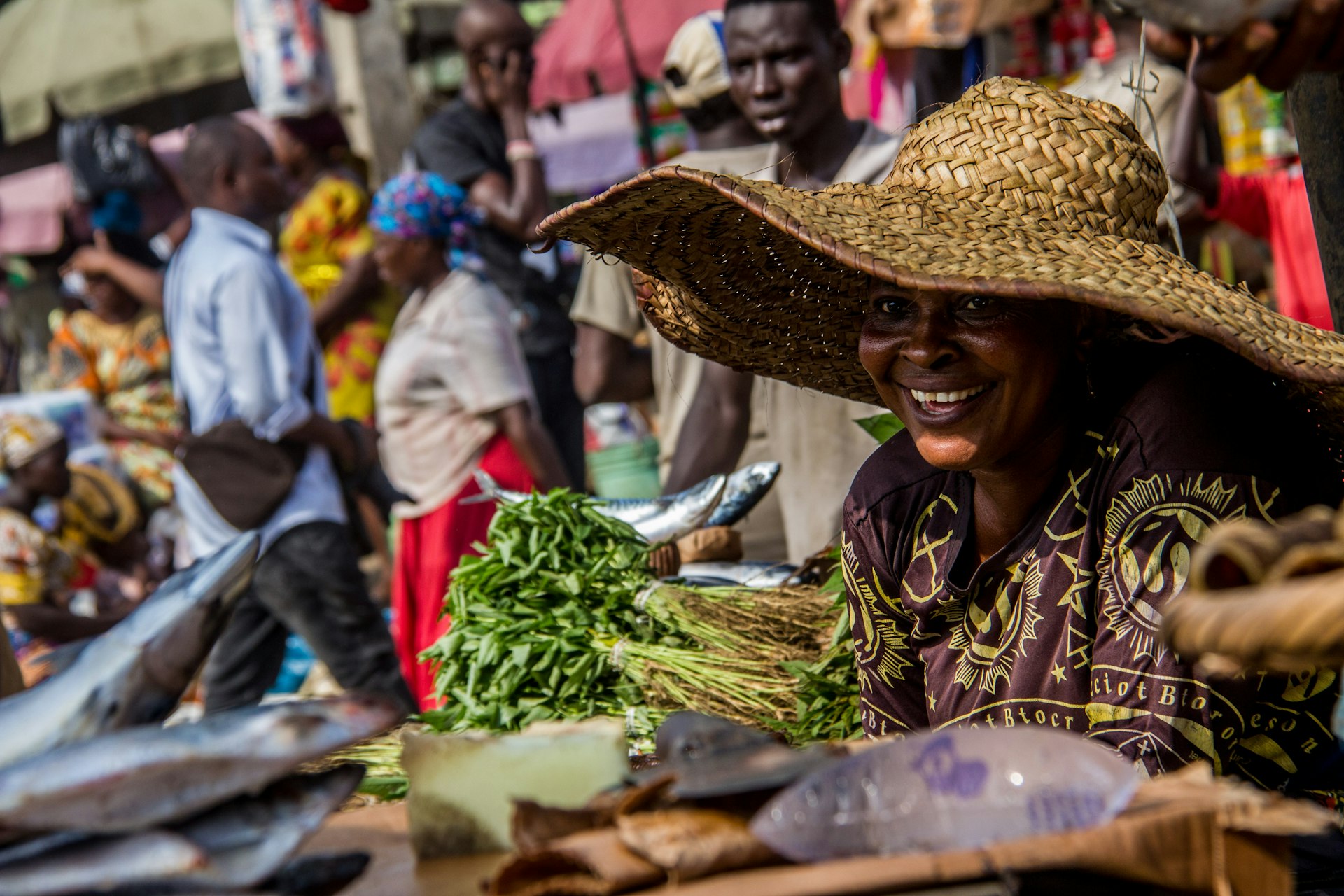
Always have cash on you, just in case – and know how to handle it
You can pay for pretty much anything in Lagos with a debit card, whether for extra room nights or having your hair styled. Increasing numbers of vendors now own point-of-sale (POS) machines, making everyday trading transactions a lot faster and seamless.
Still, it’s advisable to have some Naira notes – especially in denominations of N50 ($.12), N100 ($.25), N200 ($.50) and N500 ($1.20) – on you at all times, for those awkward moments when the mobile networks fail and cash transfers don’t go through. ATMs throughout the city make withdrawing cash easy. When paying for purchases (or giving or collecting any item, for that matter) be sure to do so with your right hand; older Lagosians consider it disrespectful to hand over cash with the left hand.
Pack your summer clothing no matter what month you arrive
Lagos has humid weather, with the average temperature is in the region of 32°C (90°F), sometimes reaching 35°C (95°F). So T-shirts, jeans, cotton pants and shorts are likely all you’ll need during your stay. The city experiences rainy (May–August) and dry (November–April) seasons, which you should consider as you plan the best time to visit.
Brace for the noise
As a first time visitor, you’ll immediately notice that Lagos is a packed city: one of the smallest states in Nigeria, it’s also the most populous, with over 20 million residents. It also has a rather high noise level, thanks to honking frequently, sermons from megaphones in religious centers, bus conductors calling out for passengers and other boisterous sources. If you stay in a hotel near a church or mosque – both of which dot nearly every part of the city – expect services throughout the week to cut into your quiet moments.

Always factor road traffic into your plans
With water transportation still largely underdeveloped and a light-rail network still under construction, Lagosians depend heavily on roads to go about their daily lives. As a result, traffic congestion is infamous in the city. Public transportation is a disorderly mix of licensed mini-buses (danfo), taxis and cabs (kabu-kabu) operating from garages and roadsides, all of which criss-cross the many vibrant neighborhoods of the city.
Three-wheeled transports (keke marwa) are ideal for neighborhood shuttles, as are motorcycle taxis (okada) – though the latter are officially banned on several routes state-wide, including on major highways. While buses charge fixed rates on their routes, you’ll have to agree on a price before your ride using any of the other options.
Enjoy the street life, but stay alert
Day and night, Lagosians know to keep their wits about them when taking a stroll or shopping, as smartphones have been reported as stolen in crowded markets or at indoor events. Even so, ignore dire warnings and plunge into the city’s unparalleled urban tableau, which will be one of your most lasting memories of Lagos.

Island or Mainland? You decide
Lagosians generally refer to themselves as Islanders or Mainlanders, depending on which side of the Lagoon they find themselves on. Everywhere, however, residents affectionately refer to their hometown as Lasgidi.
For administrative purposes, Lagos is divided into five broad regions that together form an acronym (IBILE), for Ikeja (the capital), Badagry (the far west), Ikorodu, Lagos Island and Epe (the eastern end of town). Wherever you choose to stay in Lagos, every part comes with its own vibe, with plenty of fun and fantastic things to see and do in every district.
Learn some pidgin
Lagos is dominated by the Yorubas but contains residents hailing from almost every ethnic group in Nigeria. While English is the official language of everyday speech and business, pidgin – a homegrown variant – is spoken and understood by almost everyone; in fact, Lagos could well be the country’s pidgin capital. It’s a good idea to learn a few common sayings before you arrive, to use as you’re going about the city:
• How you dey? (How are you?)
• How now? (How are things?)
• Wetin you tok? (What did you say?)
• Abeg (please)
• Na so (That’s true)
• E don do (It’s enough)
• Lai lai (impossible/never)
Lagosians light up when foreigners chat them up in pidgin, or in the local Yoruba language.
Get a Cowry card
At some point during your stay, you should try the ease and convenience of a BRT (bus rapid transit), one of the more successful public-private partnerships aimed at solving the city’s transportation challenges. Beloved by many, BRTs travel on dedicated lanes from 6am to 8pm and can sometimes be the best way to avoid traffic as you enjoy views of the cityscape.
To get on the long, air-conditioned buses, you’ll need to buy a Cowry card at any of the main terminals (Ikeja, Oshodi, Berger, TBS, Ajah or Ikorodu), then top it up with cash before you board. As you get on and off, simply tap in and out to pay your fare. According to the state government, the card will be usable on the light rail and shuttle ferries by 2023.
The second half of the year is festival season, so plan accordingly
The home of Nollywood and Afrobeats, Lagos is fun year round – but the city really comes to life in the second half of the year. The arts scene booms: post-Covid, new galleries have opened on both the Island and Mainland, and a new exhibition gets announced seemingly every other week. Stage plays and musicals are becoming fairly regular, too.
August is when the floodgates open, and the city throbs with multiple arty events. While some require an invitation, most are free to attend. The Lagos Books and Art Festival, Lagos Fringe, LagosPhoto, Lagos Fashion Week, MUSON (with drama, classical music and dance offerings), the Lagos International Jazz Festival and the Lagos International Film Festival are some of the major events on the cultural calendar each year.
If you’re around during the festive Christmas period, you’re in for a real jamboree. A state-sponsored, weeklong fiesta showcases the best of Lagos entertainment scene from comedy to concerts, as the city closes out one year and begins a new one. Visit during this period to fully understand why “Èkó for Show” is a slogan the city embraces proudly.

Weeknights are for bar-hopping and catching up with friends
Lagos is all hustle and bustle during the daytime. And as Lagosians work hard, they also play hard. On weeknights, open-air and neighborhood bars are packed with people sitting out the evening rush-hour traffic, discussing the day’s news and events or simply catching up with friends. Most have in-house DJs, who add to the fun and excitement; some of the bars also serve food, with suya (barbecued beef), barbecued fish and pepper soup all standard offerings. Note that suyas and pepper soups are quite spicy and are not to be rushed – bite and slurp with caution, and sip a lot of water to lessen the sting.
If you get an invitation to an owambe, accept it
On weekends, Lagosians take themselves to beaches, malls or cineplexes. And they dress up to attend birthdays or wedding parties (owambe), which are a point of pride here. If you’re lucky to be invited to any of these gatherings, accept at once. This will be your free pass to an afternoon of joy and spectacle, complete with ceremonial costumes and spirited dancing. If you wish to dress as the locals do, a custom outfit can be stitched to order in 24–48 hours.
Typically, the parties are feasts, marked by an almost never-ending flow of food and drinks. Starters are small bites (fried puff-puffs, samosas, spring rolls), accompanied by an assortment of drinks. The main dish could be anything from white rice, jollof rice or fried rice to iyan, eba, amala and a variety of soups; at buffet events, ask your hosts for advice on which “swallow” (yam, cassava or rice) goes with which soups, stews or sauce, and which delicacies can be served on the same plate or taken together (ofada rice with bean soup, for instance, would attract curious giggles). One more thing to keep in mind to dine like a true Lagosian: you may use cutlery for some meals, but the proper way to eat swallows is with your hands, after rinsing in water.

